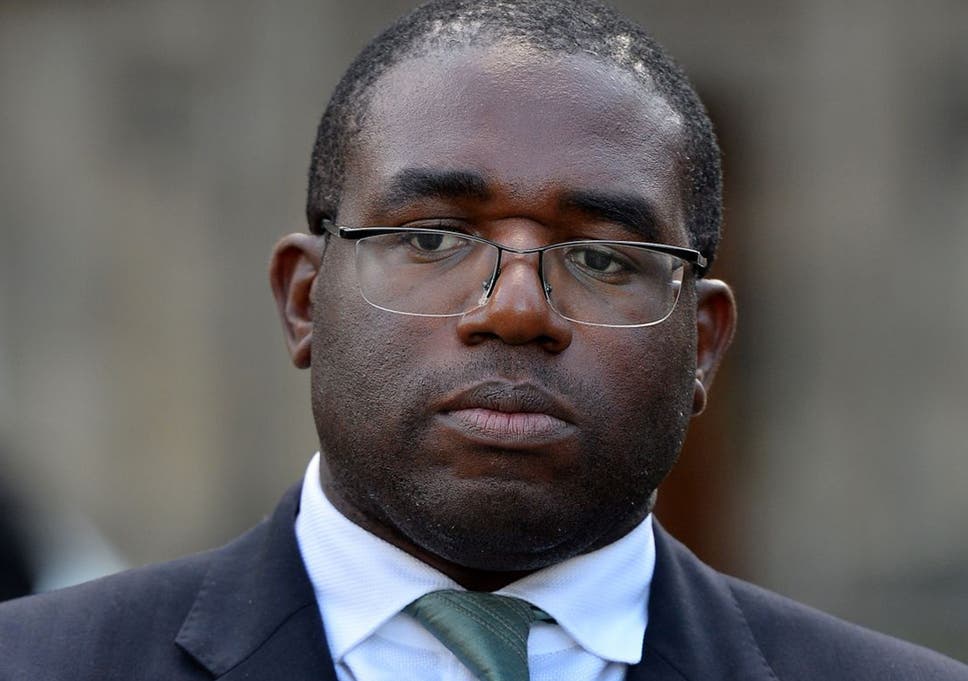Originally posted by SunnyInHades
View Post
- Visitors can check out the Forum FAQ by clicking this link. You have to register before you can post: click the REGISTER link above to proceed. To start viewing messages, select the forum that you want to visit from the selection below. View our Forum Privacy Policy.
- Want to receive the latest contracting news and advice straight to your inbox? Sign up to the ContractorUK newsletter here. Every sign up will also be entered into a draw to WIN £100 Amazon vouchers!
NHS to get additional funding from Brexit dividend?
Collapse
X
-
Well this is interesting. Do you really believe that this NHS funding is coming from a Brexit dividend? -
They've already started spending it: https://www.england.nhs.uk/2018/06/n...ple-into-work/“Brexit is having a wee in the middle of the room at a house party because nobody is talking to you, and then complaining about the smell.”Comment
-
Again, because you seem to be hard of comprehension, I think this is pointed at other posters. I don’t know whether it’s great or not. I suspect that just one solution (more money) is not the only or most correct answer.Originally posted by original PM View PostJust say it after me.
"It's great that the NHS gets some more money -
That was my point. Firstly, any “additional” payment is not “additional”, it’s the normal resumption of NHS increases that happen anyway. Secondly, you’re repeating the lie that we will save 350m from not being in the EU - even without additional costs from leaving it was never 350m. Thirdly, of course it could be “related” by politicians, but that doesn’t make it so - if any savings from not making an EU payment are already reduced through expenditure on EU programs that we want to remain a part of, plus expenditure on setting up our own agencies, plus reduction in future tax intake due to slowdown in growth (the government’s own official scenario) then the pot is empty and the payments for the NHS actually need to come out of the existing tax take.potentially this could be related to the 350 million per week we are saving from not being in the EU"
We keep trying to, but all you want to hear is that additional funding for the NHS is great, and that you don’t have to pay for it. The reality is far more nuanced.No if's, no buts, no well we were lied to in another way, no well it's not the outcome I wanted so it is not great.
Just say the facts as they are.Comment
-
In the old days I would have said no one could be that stupid, but now I've learned never to under-estimate the imbecility of the great unwashed.Originally posted by Old Greg View PostWell this is interesting. Do you really believe that this NHS funding is coming from a Brexit dividend?Hard Brexit now!
#prayfornodealComment
-
It's not even that nuanced.Originally posted by meridian View PostWe keep trying to, but all you want to hear is that additional funding for the NHS is great, and that you don’t have to pay for it. The reality is far more nuanced.
Brexit is going to cost more than it saves over the short to medium term (and in lost growth over the long term).
This extra money for the NHS means other areas will have to do without.Hard Brexit now!
#prayfornodealComment
-
Cf. the 'big lie'.Originally posted by sasguru View PostIn the old days I would have said no one could be that stupid, but now I've learned never to under-estimate the imbecility of the great unwashed.Comment
-
Commentary from Robert Peston, with not a single mention of any dividend...
https://www.facebook.com/14982767671...6892895968778/
Theresa May is turning into the most Micawberish, "something-will-turn-up" politician of modern times.
As we've seen with Brexit, if a tough decision needs to be taken - on what kind of customs arrangement we should have with the EU, for example - it's delayed till the last possible moment.
And that is also what's happening in respect of the only really tricky part of her decision to celebrate the NHS's 70th birthday, by promising to inject at least £20bn a year more into it - in real, inflation adjusted terms - by 2023-4.
The announcement of lots more dosh is the easy part. Rather more problematic is deciding where all that money will come from. Predictably, she has decided that won't be decided till the budget in November.
There are two choices that have to be made:
1) how much of the additional money should come from tax rises, and how much from borrowing?
2) when it comes to the additional tax that's needed, what is the fairest way of raising it and (not the same) what is the way least likely to be stymied by MPs.
Now one parameter is that the Chancellor, I am told, has no intention of deliberately breaching the main elements in his fiscal rules. These include a promise to cut so-called "structural" borrowing to less than 2% of GDP or national income by 2020-21 and that government debt should be falling as a share of national income by then.
Subject to those constraints, Hammond could probably allow the annual deficit to rise by £10bn a year (although doing so would render as laughable his other fiscal aim, that of balancing the budget by 2025).
Anyway he could probably find half of the increment for the NHS by sanctioning an increase in the annual deficit - which would certainly be the easiest political route.
But whether it is altogether prudent to fund day-to-day spending in this way, as opposed to borrowing for growth-enhancing investment - at a time when the economy looks set to be sluggish for years, and when the public finances are a long way from being strong enough to absorb the financial impact of the next recession - is altogether less cut and dried.
But let's say May and the Chancellor need to find "just" £10bn a year in additional taxes.
Undoubtedly the "fairest" way to finance this would be from some kind of wealth or property tax - because the greatest pressures on health resources come from our rapidly ageing population, and older people own a disproportionately large share of the nation's assets.
But with May's non-existent majority, she won't want the aggro of trying to get a new wealth tax through parliament.
So the money will probably have to come through income taxes on people or businesses.
If the Chancellor is boxed in, it's from a statement in the Tory Party's 2017 manifesto that it is "our firm intention to reduce taxes on Britain's businesses and working families" - and more precise pledges that by 2020 corporation tax will fall to 17% and that the tax thresholds for lower and higher rate income tax will rise to £12,500 and £50,000.
None of that would preclude a rise of 1p in the basic rate of income tax, or freezing tax allowances after 2020. Which - as chance would have it - would together raise roughly the £10bn needed.
This is not to say that Hammond will definitely opt for that combo of increased debt and income tax increases.
But it is to illustrate that there is almost no way he can find the needed money without either breaking a manifesto promise - he could for example reverse the pledge to lower the main business tax rate - or doing something Tories are not supposed to do, like putting up the basic rate of personal tax.
Now it may be rational for May to shelve such a politically toxic problem till the autumn. But in doing so she's merely added another to a brimming hamper of such nightmare choices, because that's when all the unmade Brexit decisions come home to roost.
With her non-existent parliamentary majority, and a divided party, this elevation of can-kicking-down-road into the leitmotif over her administration may be as much the result of circumstance as of character.
But whatever the underlying cause, it means that the Damoclean sword hangs above her noggin at all time; and goodness only knows how and if she manages to sleep.Comment
-
Here is the IFS on the so-called Brexit dividend.
Imagine falling for the Brexit dividend big lie!First, and most importantly, according to the official forecasts (accepted by the government), Brexit worsens rather than improves the public finances. In November 2016, the Office for Budget Responsibility (OBR, the government’s official forecaster) estimated that, due to economic growth being forecast to be lower than it would otherwise have been, the Brexit vote reduced tax forecast tax revenues to the tune of £15 billion in 2020–21.[3] This outweighs the UK’s net contribution to the EU by a substantial margin, and means less, rather than more money for the NHS and other services.
Second, the OBR assesses that in the short- to medium-term the UK will continue to make large payments as a result of the ‘divorce settlement’. After taking this into account, the amount left over for spending elsewhere is relatively small (calculated to be £5.8 billion in 2022–23).[4]
Third, even this overstates the extra amount to spend on the NHS, because part of this may be used to replace EU spending that would otherwise no longer take place in the UK, with agriculture the largest single element of spending currently amounting to around £3 billion per year alone.Comment
-
One possible source of funds being mooted is to halt the raise in the allowance level to raise a few billion.Originally posted by Old Greg View PostHere is the IFS on the so-called Brexit dividend.
Imagine falling for the Brexit dividend big lie!
Given that the level of allowance decreases for the wealthy, this will hit poorer people disproportionately. Rich landowners still getting their subsidies, while the poorer get shafted.
Tory economics at it’s finest.Comment
-
Not to worry. By the time the funding arrives, there will be £100,000,000,000 bank notes in circulation.Originally posted by meridian View PostOne possible source of funds being mooted is to halt the raise in the allowance level to raise a few billion.
Given that the level of allowance decreases for the wealthy, this will hit poorer people disproportionately. Rich landowners still getting their subsidies, while the poorer get shafted.
Tory economics at it’s finest.Comment
- Home
- News & Features
- First Timers
- IR35 / S660 / BN66
- Employee Benefit Trusts
- Agency Workers Regulations
- MSC Legislation
- Limited Companies
- Dividends
- Umbrella Company
- VAT / Flat Rate VAT
- Job News & Guides
- Money News & Guides
- Guide to Contracts
- Successful Contracting
- Contracting Overseas
- Contractor Calculators
- MVL
- Contractor Expenses
Advertisers
Contractor Services
CUK News
- How key for IR35 will Control be in 2026/27? Today 07:13
- What does the non-compete clause consultation mean for contractors? Yesterday 07:59
- To escalate or wait? With late payment, even month two is too late Feb 18 07:26
- Signs of IT contractor jobs uplift softened in January 2026 Feb 17 07:37
- ‘Make Work Pay…’ heralds a new era for umbrella company compliance Feb 16 08:23
- Should a new limited company not making much money pay a salary/dividend? Feb 13 08:43
- Blocking the 2025 Loan Charge settlement opportunity from being a genuine opportunity is… HMRC Feb 12 07:41
- How a buyer’s market in UK property for 2026 is contractors’ double-edge sword Feb 11 07:12
- Why PAYE overcharging by HMRC is every contractor’s problem Feb 10 06:26
- Government unveils ‘Umbrella Company Regulations consultation’ Feb 9 05:55









Comment